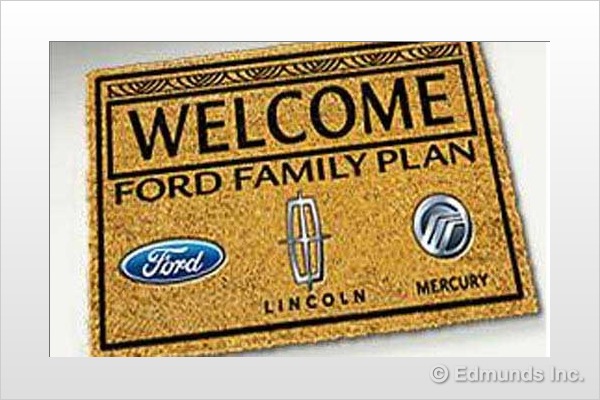
Incentives and rebates have been part of the car-buying landscape for several years. Now, along comes a new twist, "employee discount programs" trumpeting once-in-a-lifetime deals. Is this the real deal? Or just more advertising hype?
The answer isn't a simple yes or no. Instead, we have to say that the employee discount programs seem to offer better deals for more people. What we mean is this: most buyers hate negotiating. Under the employee discount programs, they can get a good deal with less haggling. In most cases, they can look up the price on the Internet before they go near a dealership, and be confident they can get the car for that amount.
Can they get a better deal now than before the beginning of these programs? In a few cases, yes. In most cases, no. The savvy shopper (i.e. the reader of this column) could have gotten the equivalent of the employee discount by using the Internet and comparison shopping for the lowest price. After all, the employee discount price is really just invoice minus the holdback, minus whatever rebate is being offered.
When GM opened the employee discount program it caused buyers to swoon, dance in the streets and froth at the mouth. Clearly, it seemed a buyer's paradise with a limited time offer. But after Ford and Chrysler followed suit, the depressing reality began to set in: it was just another advertising gimmick to move cars at the end of the model year to make room for the new models.
Still, if you're in the market to buy a car anyway, the buyer's discount program may not be a bad thing. And you can't go too far wrong when you start at invoice minus the holdback. Or can you?
Keep in mind that, whenever you enter a car dealership, it's open season on your wallet for car salesmen. Just because the price of the car is fixed doesn't mean there aren't other parts of the deal where you can lose money. Here is our list of tips to help you maximize the savings and get you the best deal:
Finally, remember that the most important thing is that you get the right car for you, one that suits your needs. If you get the wrong car it won't be a good deal, no matter what you pay for it.